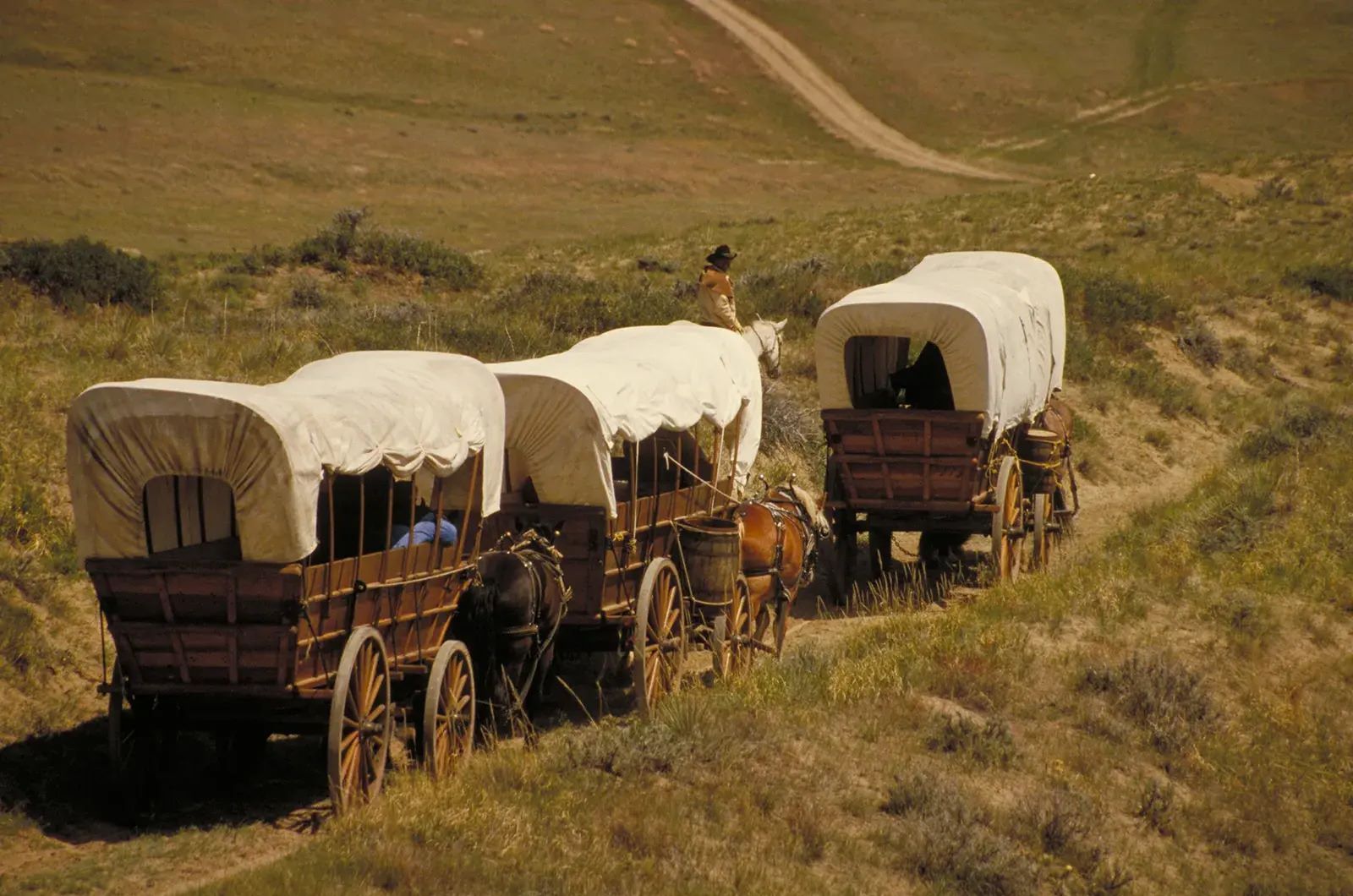America’s Hidden Traveling Libraries Of The Frontier

Have you ever heard of traveling libraries? These unique collections of books traveled across America's frontier, bringing knowledge and entertainment to remote communities. Imagine living in a time when books were scarce, and the nearest library was hundreds of miles away. Traveling libraries solved this problem by delivering books directly to people's doorsteps. They played a crucial role in spreading literacy and education during the 19th and early 20th centuries. From horse-drawn wagons to bookmobiles, these mobile libraries adapted to the changing times. Let's take a closer look at how these traveling libraries made a lasting impact on American history.
America's Hidden Traveling Libraries of the Frontier
Imagine a time when books were rare treasures, and libraries were few and far between. In the vast expanse of the American frontier, traveling libraries brought knowledge, stories, and a sense of community to isolated areas. These mobile book collections were lifelines for settlers, offering a glimpse into worlds beyond their immediate surroundings.
The Birth of Traveling Libraries
Traveling libraries emerged as a solution to the scarcity of books in rural areas. These mobile collections were often transported by horse-drawn wagons, trains, or even boats. Let's explore some of the most fascinating traveling libraries that roamed the American frontier.
1. The Perambulating Library of New York
In the late 19th century, New York State introduced the Perambulating Library. This innovative service used horse-drawn wagons to deliver books to rural communities. The wagons carried a diverse selection of books, ensuring that even the most remote areas had access to literature.
2. The Book Boat of Wisconsin
Wisconsin's Book Boat, also known as the "Floating Library," navigated the state's waterways to bring books to isolated communities. This unique library service operated on a steamboat, making stops at various river towns to distribute books and promote literacy.
3. The Pack Horse Library of Kentucky
During the Great Depression, the Pack Horse Library initiative brought books to the Appalachian region of Kentucky. Librarians, often women, traveled on horseback through rugged terrain to deliver books to remote homes and schools. This program not only provided reading material but also fostered a love for learning in underserved areas.
The Impact of Traveling Libraries
Traveling libraries did more than just deliver books; they connected communities and inspired a love for reading. These mobile libraries played a crucial role in promoting literacy and education in the frontier.
4. The Traveling Library of Iowa
Iowa's Traveling Library, established in the early 20th century, used specially designed book wagons to reach rural areas. The service provided a rotating collection of books, ensuring that readers always had fresh material. This initiative helped bridge the gap between urban and rural education.
5. The Railroad Library of California
California's Railroad Library took advantage of the state's extensive rail network to distribute books. Specially outfitted train cars served as mobile libraries, stopping at various towns along the tracks. This service brought books to communities that otherwise had limited access to reading material.
6. The Bookmobile of Washington
Washington State introduced one of the first motorized bookmobiles in the 1920s. This early version of the modern bookmobile traveled to rural areas, providing a wide range of books to readers of all ages. The convenience and accessibility of the bookmobile made it a popular service among frontier communities.
The Legacy of Traveling Libraries
The legacy of these traveling libraries lives on in modern bookmobiles and digital library services. They paved the way for innovative methods of delivering books and promoting literacy in underserved areas.
7. The Wagon Library of Nebraska
Nebraska's Wagon Library, launched in the early 1900s, used horse-drawn wagons to bring books to rural schools and homes. This service was particularly important for children, who often had limited access to educational resources. The Wagon Library helped foster a culture of reading and learning in the state's frontier communities.
8. The Bicycle Library of Montana
Montana's Bicycle Library was a unique initiative that used bicycles to deliver books to remote areas. Librarians pedaled through rugged terrain, carrying books in specially designed baskets. This service provided a lifeline for readers in isolated communities, ensuring that they had access to literature and educational materials.
9. The Mule Library of Arizona
Arizona's Mule Library took a creative approach to delivering books in the desert. Librarians used mules to transport books to remote ranches and settlements. This service was essential for providing reading material to communities that were difficult to reach by traditional means.
10. The Sled Library of Alaska
In the harsh winters of Alaska, the Sled Library brought books to isolated communities. Librarians used dog sleds to navigate snowy terrain, delivering books to readers in remote villages. This service was a testament to the dedication of librarians and the importance of literacy in even the most challenging environments.
The Legacy of Traveling Libraries
Traveling libraries played a huge role in shaping the frontier. They brought books and knowledge to remote areas, helping communities grow. These mobile libraries were more than just book carriers. They were symbols of hope and progress, showing that even the most isolated places could connect to the wider world.
Today, the legacy of these libraries lives on. Modern bookmobiles and digital libraries continue their mission, ensuring everyone has access to literature and information. The spirit of those early traveling libraries reminds us of the power of education and community.
Next time you see a bookmobile or visit a library, think about the pioneers who made it possible. Their dedication to spreading knowledge helped build the foundation of our society. The story of America's traveling libraries is a testament to the enduring importance of books and learning.

